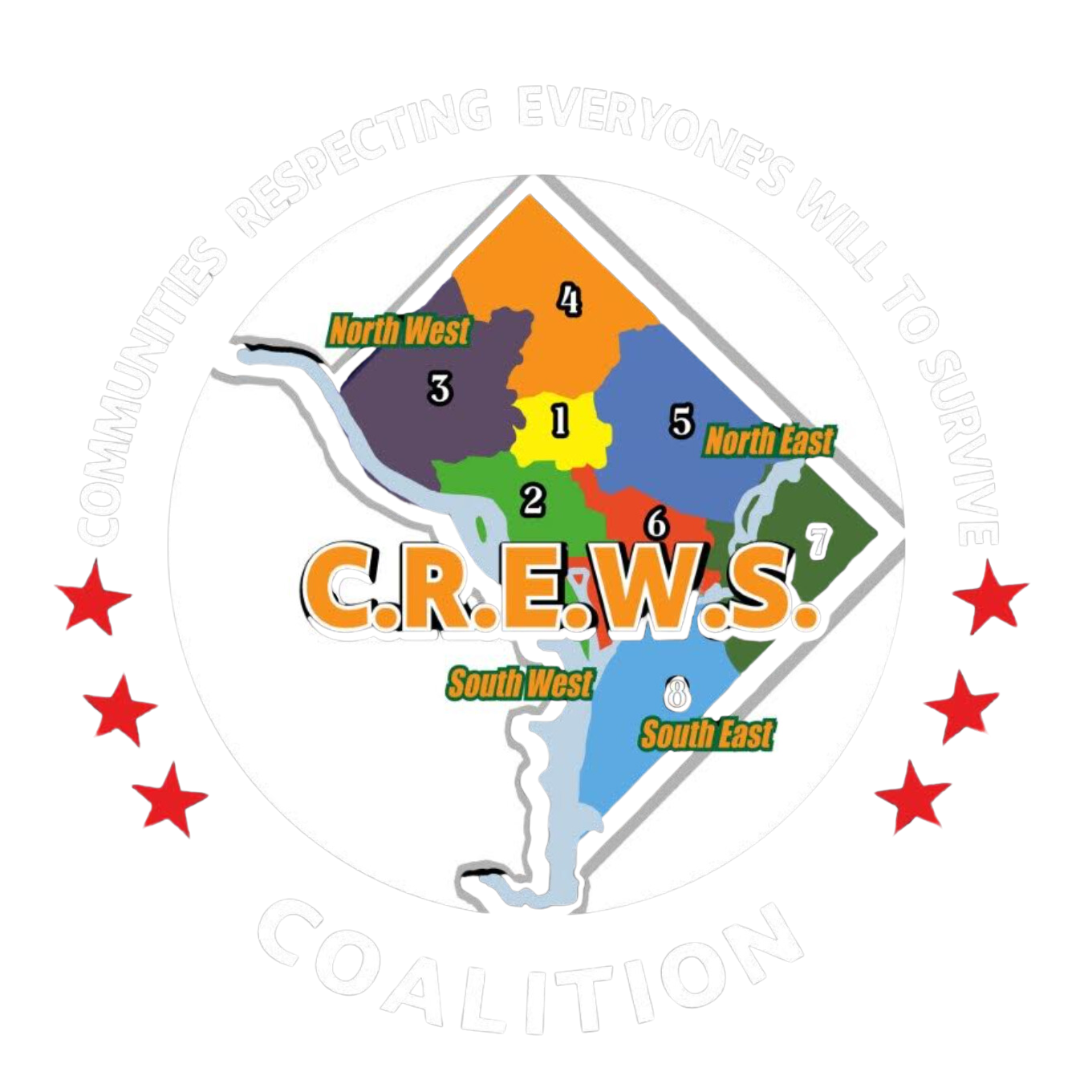CREWS emerged as a shared-vision of fostering a grass-roots unity between community-based organizations who share a common goal of addressing the enduring issue of Black Oppression. We are seeking a strategic alliance and collaborations with organizations that are committed to the total liberation of our community.
In the context of addressing social issues in black and disadvantaged neighborhoods, CREWS stands as an all-encompassing umbrella organization, uniting like-minded grassroots individuals and organizations. Our shared dedication remains steadfast, as we work tirelessly to address the deep-seated systemic challenges that have historically hindered the progress and prosperity of each generation within the Black
Community.

CREWS ETHICS AND PRINCIPLES offers a set of values, principles, and standards to guide decision making and conduct when ethical issues arise. It does not provide a set of rules that prescribe how social workers should act in all situations. Specific applications of the Code must take into account the context in which it is being considered and the possibility of conflicts among the Code‘s values, principles, and standards. Ethical responsibilities flow from all human relationships, from the personal and familial to the social and professional.

The following broad ethical principles are based on CREWS core values of service, social justice, dignity and worth of the person, importance of human relationships, integrity, and competence.
These principles set forth ideals to which all CREWS partners should aspire.

Ethical Principle: CREWS value of love is an acceptance and recognition of our individual oneness with humanity.
Love is the nature of our basic unity. CREWS work in the community is an expression of our Love for the community. Love is the guiding principle in which our services is established upon.



Ethical Principle: CREWS foundational principle is Unity.
CREWS value Unity among the individuals and the organizational partners. Unity of the organizations within CREWS is the basis of CREWS service and operational paradigm to effect change and social reform.

Ethical Principle: CREWS’ primary goal is to help people in need and to address social problems.
CREWS elevate service to others above self-interest. CREWS draw on their knowledge, values, and skills to help people in need and to address social problems. CREWS are encouraged to volunteer some portion of their professional skills with no expectation of significant financial return (pro bono service).



Ethical Principle: CREWS challenge social injustice.
CREWS pursue social change, particularly with and on behalf of vulnerable and oppressed individuals and groups of people. CREWS’ social change efforts are focused primarily on issues of poverty, unemployment, discrimination, and other forms of social injustice. These activities seek to promote sensitivity to and knowledge about oppression and cultural and ethnic diversity. CREWS strive to ensure access to needed information, services, and resources; equality of opportunity; and meaningful participation in decision making for all people.

Ethical Principle: CREWS respect the inherent dignity and worth of the person.
CREWS treat each person in a caring and respectful fashion, mindful of individual differences and cultural and ethnic diversity. CREWS promote clients’ socially responsible self-determination. CREWS seek to enhance clients’ capacity and opportunity to change and to address their own needs. CREWS are cognizant of their dual responsibility to clients and to the broader society. They seek to resolve conflicts between clients’ interests and the broader society’s interests in a socially responsible manner consistent with the values, ethical principles, and ethical standards of the profession.



Ethical Principle: CREWS recognize the central importance of human relationships.
CREWS understand that relationships between and among people are an important vehicle for change. CREWS engage people as partners in the helping process. CREWS seek to strengthen relationships among people in a purposeful effort to promote, restore, maintain, and enhance the well-being of individuals, families, social groups, organizations, and communities.

Ethical Principle: CREWS behave in a trustworthy manner.
CREWS are continually aware of the profession’s mission, values, ethical principles, and ethical standards and practice in a manner consistent with them. CREWS act honestly and responsibly and promote ethical practices on the part of the organizations with which they are affiliated.



Ethical Principle: CREWS practice within their areas of competence and develop and enhance their professional expertise.
CREWS continually strive to increase their professional knowledge and skills and to apply them in practice. CREWS should aspire to contribute to the knowledge base of the profession.
